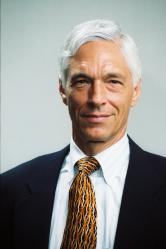Executive Summary
Intense domestic pressure has convinced Nigeria’s President, Olusegun Obasanjo, to consider a deal that would eliminate the country’s $31 billion of debt owed to the governments of the United Kingdom, France, and other aid-giving countries.
The creditor countries have proposed an unprecedented deal that would cancel all of Nigeria’s debt to them in exchange for a cash payment of roughly $12 billion. Thus the write-off would amount to $18 billion or 60 percent of what Nigeria now owes them. The proposed deal is unprecedented because the Paris Club has never before agreed to a buyback of debt at a discount. (They only agreed to the first ever buybacks, at par, earlier this year.) The Paris Club, an informal mechanism for restructuring loans extended by bilateral official agencies, has carried out almost 400 debt-restructuring operations with debt-distressed countries over the past 50 years.
Thus the write-off would amount to $18 billion or 60 percent of what Nigeria now owes them. The proposed deal is unprecedented because the Paris Club has never before agreed to a buyback of debt at a discount. (They only agreed to the first ever buybacks, at par, earlier this year.) The Paris Club, an informal mechanism for restructuring loans extended by bilateral official agencies, has carried out almost 400 debt-restructuring operations with debt-distressed countries over the past 50 years.
The creditor proposal is driven by UK Prime Minister Tony Blair’s decision to make aid to Africa one of the centerpieces of the July 2005 G-8 Summit meeting at Gleneagles in Scotland. The Summit leaders agreed on this occasion to cancel the remaining debt of the Heavily-Indebted Poor Countries (HIPCs) owed to multilateral institutions (IMF, World Bank, and African Development Bank) under a program initiated in 1996. Although Nigeria is not a HIPC because of its oil revenues, the G-8 leaders could not ignore Nigeria because it is Africa’s most populous country, has a democratic government in place after 16 years of military dictatorship, has followed enlightened economic policies for the past five years, and has an annual per capita income below the average of the HIPCs.
The proposed deal is being sharply criticized from both sides. In Nigeria, the President Obasanjo is accused of being hoodwinked by the Paris Club and using the country’s valuable foreign exchange reserves to satisfy foreign creditors instead of alleviating poverty at home. In the creditor countries, governments are being accused of rewarding one of the most corrupt countries in the world for reneging on its contractual obligations when it has the capacity to meet these in full.
In contrast to commercial debt-restructuring operations, Paris Club operations are highly politicized. The deal on the table reflects heavy political baggage that burdens both parties. While it is possible to speculate on what a non-political deal would look like, this is an academic exercise. In the end, this was the only deal that was politically feasible for both sides.
The broader implications of the deal for the creditor countries are generally positive because they move the Paris Club toward greater flexibility after a period of five years in which inflexibility was raising the perceived risk of private sector lending to emerging market countries and therefore constraining access to international capital markets for this important group of countries as a whole.
The implications of the deal for Nigeria are harder to assess because debt relief buys nothing; it only formalizes past losses. The future economic prospects of Nigeria do not depend on whether Nigeria has zero, $3 billion, or $31 billion of Paris Club debt. It depends on the degree of social consensus in the country in support of wise economic policies and a long list of institutional improvements required to reduce corruption and foster job-creating productive investments.
The deal is not yet closed. Before Nigeria can sit down with the Paris Club creditors and hammer out the details, Nigeria will have to reach agreement with the IMF on an economic program to be supported by a new IMF facility to be created by September. The program will be based on Nigeria’s “home grown” economic reform blueprint, the National Economic Empowerment and Development Strategy (NEEDS). After the Paris Club agreement has been signed, Nigeria will have to clear its end-2004 arrears with a cash payment of $6 billion, and pay any additional amounts agreed to. Finally, Nigeria will have to meet the initial targets of its economic program that will be the basis for the buyback around March 2006 that will extinguish all of its remaining Paris Club debt. Passing these hurdles without stumbling will not be easy and will require exceptional patience and understanding on both sides.



